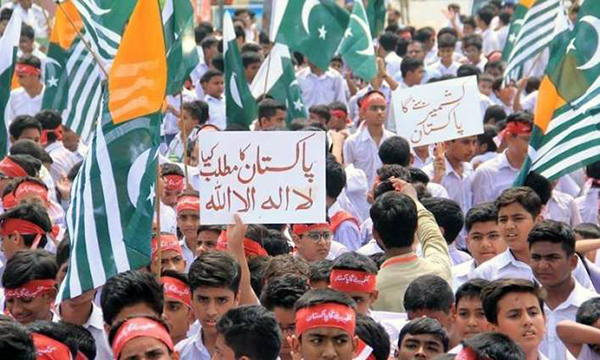The perfunctory, lukewarm response that was generated among the ordinary people in Pakistan and in Kashmir regarding “Kashmir Solidarity Day” (KSD) is likely to ring the death knell of this nearly 18-year-old propaganda event for which GHQ, Rawalpindi, has been soliciting a substantial amount of public money from Pakistan’s civilian government every year.
International and domestic observers, who were following the impact, if any, that was generated among the common mass in Pakistan and Kashmir regarding this “event”, have found that this year too, as has been the trend for some time now, KSD did not generate any traction on the ground.
KSD, according to Indian officials, was brought into being by GHQ, Rawalpindi with two intentions—to spread propaganda regarding a “free Kashmir” and use the same to instigate locals to take up arms.
According to official data seen by The Sunday Guardian, the number of public processions, rallies, special prayers or speeches in mosques in Kashmir that were frequent some years ago to mark this day, has gone down to zero. The decrease in the number of such “events” has coincided with the passing away of separatist Hurriyat leader Syed Ali Geelani and the abrogation of Article 370.
Officials said that due to the “massive focus” on carrying out development work in the valley since the last couple of years has also dissuaded local youths from participating in such propaganda events. “The difference in the standard of living and the level of infrastructure between Kashmir and Pakistan Occupied Kashmir (PoK) is so stark that it is now being acknowledged by youths on both sides, and that is another reason that this KSD propaganda has lost whatever traction it used to have,” an official said.
On the Pakistan side, a scan of social media and traditional media by observers showed that the ordinary Pakistani too was not upbeat about KSD, which was termed by them as a state sponsored “antic” to deflect the attention of the Pakistani people from more pressing issues.
Officials in the security apparatus in Delhi told The Sunday Guardian that despite involving its embassies across the world, the strategists at GHQ were unable to achieve the result that they had hoped for regarding generating noise in support of KSD at a global level. The embassies were asked to conduct online events and debates, which generated an audience in two digits.
Official sources said that the Intercontinental hotel, Kabul refused to hold a KSD event following which the Pakistan mission in Kabul complained to the Afghan foreign ministry claiming that the hotel acted on the orders given by the Kabul government.
GHQ’s effort in Kabul witnessed another setback as even as the Pakistan embassy was celebrating KSD, a large number of Pashtuns assembled in front of the embassy and started protesting against the detention of Pashtun Tahafuz Movement leader, Manzoor Pashteen by Pakistani officials. As a result of the commotion, the embassy had to cancel the KSD event abruptly. According to watchers, the Pakistani civilian machinery, under the direction of GHQ, prevailed over local representatives of MNCs like Dominos, Hyundai, Toyota, Suzuki and Pizza Hut to put out messages on social media showing their support for KSD.
However, as soon as it came to the knowledge of their parent companies, that are based outside of Pakistan, all such messages were deleted, proving the propagandistic nature of KSD. All the parent companies issued multiple apologies and clarifications which further dismantled GHQ’s effort to portray KSD as a “pan-nation” sentiment. Details accessed by The Sunday Guardian show that the local administration in Pakistan occupied Gilgit-Baltistan (PoGB) were asked to arrange for anti-India banners and gather people around it.
Despite pressure being put by the commander of the 10 Corps of Pakistan Army on the “Prime Minister” of PoK for not being able to organise enough noise against India’s 73rd Republic Day, the local PoK administration, despite its best efforts, was unable to bring a crowd for KSD too. Local policemen in civil clothes and women employee in local offices were asked to participate in the KSD events. But this too was resisted by locals in Bagh, Mong and Hajira, who called it a “Fraud day” while comparing the facilities in Srinagar and that in PoK.
The idea of KSD to portray negative image about India was first proposed by Jamaat-e-Islami leader Qazi Hussain Ahmed in 1990, which also got the support of former Prime Minister Nawaz Sharif at that time and 5 February was declared as a public holiday to “express solidarity” with “Kashmir struggle for freedom”. GHQ Rawalpindi took up the responsibility of managing this event in 2004.

















